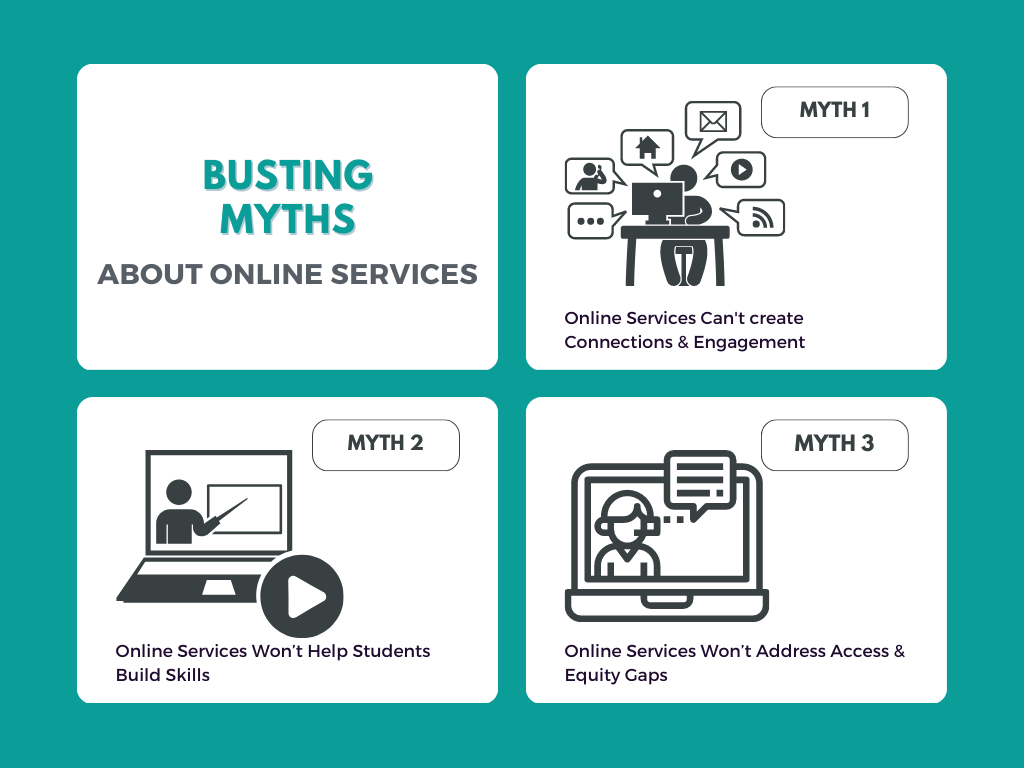
→ Download Now: Infographic - Busting Myths About Online Services
In a 2022 survey by Cengage, 85% of college students responded that online support services were effective and important. “These findings are important because they center the student voice and offer valuable insights for our colleges to consider as they work to deliver services to address student success,” said Dr. Karen A. Stout, president and CEO of Achieving the Dream. The bottom line: students overwhelmingly expect that their higher education academic journey will include online support. Online services are a critical component to addressing equity and access. John Farrar, industry director of higher education at Google, concurred in a recent article, “learning channels are expanding to create more access and affordability.” But despite research and findings, myths persist about the effectiveness of online student support services.
Myth 1: Online Services Can't create Connections & Engagement
Online student services provide valuable support and help students foster a connection with staff, faculty, or fellow students. Many college students find online support services crucial, especially those taking online classes or who cannot visit on-campus resources due to work or family constraints. Online support services can include mentorship programs, coaching, tutoring sessions, academic advising, and career services. Furthermore, online resources give students the support they need to succeed in their classes, extend their learning environment with virtual office hours, maintain their mental health and well-being, and learn about the campus climate.
Myth 2: Online Services Won’t Help Students Build Skills
Institutions should continue to develop and hone online resources that can help students prepare for careers or upskill. Utilizing short videos on time management strategies or building a budget can facilitate students developing skills needed for success in college and beyond. Students are seeking opportunities to earn certificates, micro-credentials or badges that demonstrate competency. Such resources can help bridge socioeconomic gaps and support all learners.
Myth 3: Online Services Won’t Address Access & Equity Gaps
While certainly institutions need to be aware of students having access to the technology that makes online services possible, What colleges and universities have discovered in pandemic-learning is that technology-based online support services eliminate barriers to education imposed by space and time. From its research, Instructure recommends that institutions provide a comprehensive tech suite that supports all students to be successful. Institutions should design online services with access in mind ensuring that content meets accessibility standards, is provided in multiple formats, potentially in multiple languages, Learn more about how to go about closing equity gaps with online services from this recent webinar.
Resources
The State of Student Success & Engagement in Higher Education
Like To Learn More? Schedule A Demo
By Meg Foster
Online Learning & Design Specialist - Consultant
March 29, 2022



Comments 0